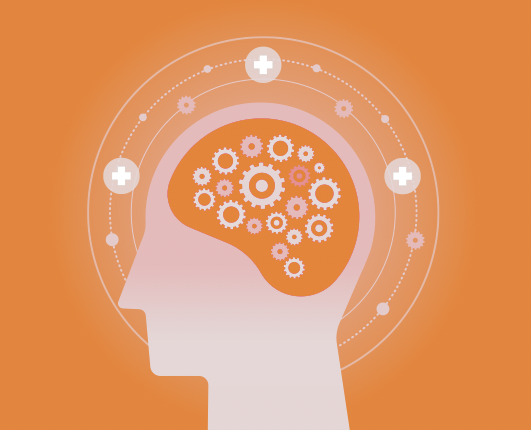A simple solution to improve our work performance and overall success, it seems, would be to focus on cutting the friction—or effort—of the tasks involved, creating an obvious and clear path towards our desired results. Some may interpret this as working as long (and often) as possible to sacrifice sleep for success, but studies now prove that this is one of the worst things we can do. It’s quite the opposite, as one of the best ways to improve both our work performance and our ability to excel in life is to prioritize our sleep!
Author’s note: As self improvement requires doing the dirty work of identifying our strengths and weaknesses, I have sadly identified one of my worst habits, which is staying up much too late! Read on to learn more about how sleep prioritization is one of the most effective ways to improve work performance and increase productivity.
Your best day ever starts the night before

Those late evenings of burning the midnight oil (this includes any late-night viewing of bright lights and screens) will stop your brain from releasing dopamine. And this dopamine release is an essential step in improving your work performance and empowering professional development.
Read that again—
Staying up late, working on your computer, playing on your phone, or consistently viewing bright electronic lights will make it physically harder to increase productivity.
Taking actions towards our goals can be hard enough, so why make it even more difficult on ourselves by essentially canceling dopamine?
Harnessing the power of dopamine is an effective way to improve work performance
Dopamine was discovered in the late 1950s as the precursor of epinephrine/adrenaline. We think of dopamine as the molecule of reward and pleasure. But, it’s actually produced from epinephrine (aka adrenaline in the brain), which allows us to move into action.

Dopamine does so much for us! It’s released from several areas in the brain and body, but most importantly, it’s highly active in the mesolimbic reward pathway. This pathway helps to ignite the process of our desire to engage in a specific action, both positive (such as choosing to be physically active) and negative (feeding an unfortunate drug addiction).
The less dopamine that’s released into our bodies, the harder it will be to take action—even those things we tell ourselves that we’d REALLY like to accomplish!
Motivation is non-existent without dopamine
Motivation is fundamental to our daily life! It’s what allows us to get out of bed in the morning and to pursue both long-term and short-term goals. What’s interesting is that the chemistry of motivation is tightly bound with the chemistry of movement.
This is where dopamine comes in. It’s the exact molecule that is responsible for our desire to engage in both physical and intellectual activity. And its presence is imperative when wanting to increase productivity.

Ways to Improve Work Performance: The latest from Huberman Labs
In an earlier publication, we shared research from Dr. Andrew Huberman about understanding what exactly a growth mindset is and the ways we can learn to “hack” it. Huberman, an American neuroscientist, and professor at Stanford University, explained that a growth mindset is the attachment that takes place between our internal reward system and the friction we experience during processes that take effort.
But in his most recent podcast for Huberman Labs, Dr. Huberman asked us: “Are You Suppressing Your Drive and Motivation By Working Late into the Night?” He explained in detail what’s taking place when we stay up too late.
Blunting dopamine isn’t something new
“[There’s something that] you may not be aware of, and even if you’re aware, you may still be doing it… which is severely injuring your ability to release dopamine. It’s creating a sense of disappointment in ways that are most likely hurting you mentally and physically. And that’s the blunting of dopamine.”
The blunting of dopamine takes place when we view bright light in the middle of the night (from about 10:00 PM to 4:00 AM).
Simply put, as bright light enters our eyes during these hours, we stop the process of releasing much-needed dopamine. This is happening as the light triggers activation of the habenula, which suppresses the activation of the reward circuitry process. And unfortunately, this affects events happening not only in that moment but also the things that we normally anticipate in a positive way and that we regularly pursue. This means that without dopamine, we’re not getting anything done!
Performance at work throughout the day is determined by your actions the night before.
Huberman further explains: “…you have this very precious reward system, that’s kind of a double-edged sword. It needs to be taken care of and treated well. You want to use it, but not overuse it. Getting bright light exposure in the middle of the night is reducing your capacity to release dopamine. So it’s not just about the sleep that you’re not getting in that time. It’s also that you’re not getting the dopamine that would otherwise be available to you. Think of light in the middle of the night as a blocker of dopamine.”
The obvious solution to improve your work performance and increase motivation
Plain and simple self-discipline is the only answer here. How committed are you to keep your brain health at its peak state by allowing the MAXIMUM amount of dopamine to be released into your system? Are you going to allow potential success and happiness to slip away as your motivation drops (because of your choice to stay up late at night)?
Science has spoken, and it’s telling us that staying up too late equates to intentionally cutting off your natural flow of vital dopamine. The power is literally in your hands. Shut down the phone, make it an early night, and get ready to take your inspiration to new heights!

More than work life balance: set goals for a better mindset to improve your performance at work (and life)
- We’ve already determined that a good night of sleep is imperative.
- Better time management for entrepreneurs is a skill to be mastered, just as is developing more effective communication with your team members or clients. For these, we highly recommend a free book from John Assaraf: The Million Dollar “Neuromarketing” Machine. You can learn to master the art of routines and business communications with one of the industry’s top leaders!
- Don’t lose focus. It is estimated that we’re somehow interrupted during our work day every 6 to 12 minutes. Interruptions and distractions come in many forms such as social media notifications, a need to excessively take breaks, unexpected phone calls we need to address, or maybe even a really interesting podcast playing in the background that’s got your mind wandering. Continuous interruptions will cause us to lose focus and waste time!
- Avoid multitasking. Most people believe they excel with multitasking, but the only thing it guarantees is a compromise of quality in our work. Working on one task at a time makes you feel less stressed, more efficient, and less prone to making mistakes.
Quick tip from the Neurogym Team:
Turn Off Background Noise
Don’t casually listen to podcasts and watch TV shows while working or doing chores. Focus on those things and cherish your ability to do a good job and take care of yourself and your home.
The willingness to put down your phone and confront whatever makes you want to run away means the difference between living a meaningful life and staying forever imprisoned by pain and avoidance.
If you’d like to learn more to learn more about some of the latest techniques to change your mindset and eliminate your destructive habits, join us for a free workshop with John Assaraf and neurogym HERE!
Recommended for you:
Joe Dispenza – “Learn the Science of Changing your Mind”
Get this FREE GUIDE to learn about his TOP RESOURCES you can start using NOW!
GrowthLenses MindSet
GrowthLenses MindSet articles were created to educate and inspire readers, featuring our favorite thought leaders, authors, and resources.


Thanks!